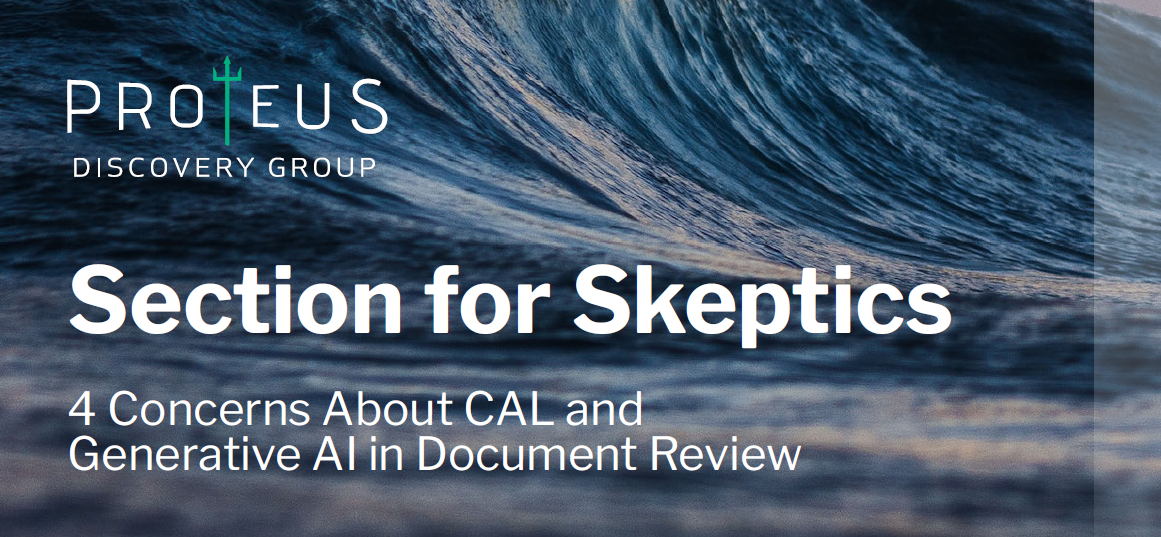Dear reader,
Artificial Intelligence (AI) has been the shiny object in the legal space for the past 12 months or so. If you are like me, it’s all you have been seeing on legal news headlines and across LinkedIn.
Software providers quickly assessed the situation and have released products that assist with legal research, draft briefs, analyze contracts, and make coding and privilege decisions during document review. The stats fly around saying 40% of an attorney's role will be replaced by Generative AI at some point.
As usually happens, the reality certainly will not match the hype.
Forms of artificial intelligence have been used in eDiscovery since the late 2000s in different ways, including concept clustering, sentiment analysis, image labeling, and others.
The technology landscape aside, you hire outside counsel to defend your economic interests, and those attorneys have ethical duties to understand intimate details of cases and supervise any cast of supporting characters, like eDiscovery providers. Much of the software that those providers use feels like a "black box" and because litigators are not confident that they can explain what is going on inside that box, these tools do not see widespread adoption. And won’t until the public as a whole gets more comfortable with the idea of using artificial intelligence in their daily lives.
I understand those concerns. In addition to founding an eDiscovery company, I have been a litigator for over 15 years. Believe me, I'm a trained skeptic. This document I have put together is for my fellow skeptics who are both curious and hesitant about using AI in document review.
Read my "Section for the Skeptics" that addresses the top 4 concerns about Continuous Active Learning (CAL) and Generative AI in document review. Or download a full copy of the eBook, “AI in Document Review. Skeptical? We are Too." for more.
Sincerely,
Ray Biederman
CEO and Co-Founder
Proteus Discovery Group



